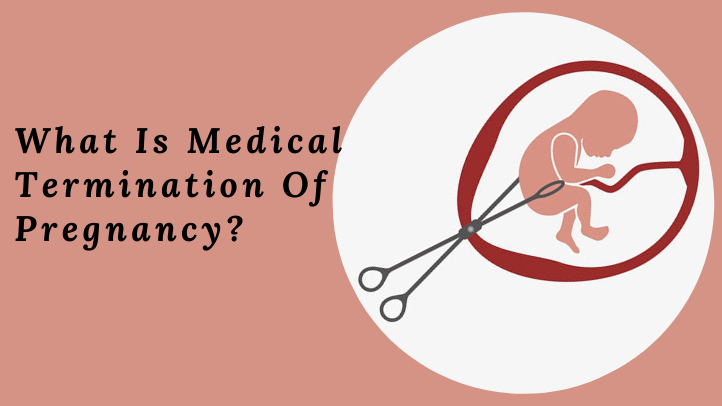
What is Medical Termination of Pregnancy? – Medical termination of pregnancy (MTP) simply refers to the legal process of terminating a pregnancy or stopping the child’s birth under certain conditions. It is a complex and sensitive issue that involves medical, legal and ethical considerations. The Medical Termination of Pregnancy Act 1971, allows for abortions to be performed by registered medical practitioners.
Under this Act, abortion in India can be performed until the 20th week of pregnancy. If the pregnancy is before seven weeks, the termination of pregnancy can be done easily with oral medication without any surgical operation. The age of the pregnancy is calculated from the first day of your last period or one may need an ultrasound scan to confirm this.
Under specific circumstances, Medical Termination of Pregnancy can be done in various
Situations such as involving
Having different opinions on the Termination of Pregnancy may result in many issues. One opinion is that terminating a pregnancy is the choice of the pregnant woman and a part of her reproductive rights while the other is that the state must protect life, and hence should provide for the protection of the fetus.
Oral Method: If the pregnancy is less than six months one can opt for this method to have an abortion using certain pills (a combination of misoprostol and mifepristone). By Following this method, bleeding will begin from the uterus and an abortion will occur. It can last for several days
Effects: Severe bleeding, dizziness, sweating or unbearable discomfort
Suction Method: This is used until one reaches the end of the first trimester (three months) or at the beginning of the second trimester. It involves gentle suction using surgical instruments like vacuum aspirations to extract the foetus from your uterus.
Effects: Bleeding from the cervix, uterus infection
Dilation and Evacuation (D&E) Method: This method depends on the gestational age of the pregnancy and is used when one reaches the second stage of the trimester. Before performing this method, the cervix must be dilated. Once dilated, the doctors will use forceps to remove the fetus from the body and bring the pregnancy to an end.
Effects: Extremely pain and discomfort
These methods depend on factors such as gestational age, medical history and individual preferences.
Note: Medical termination of pregnancy should only be carried out in licensed hospitals because even though it is a relatively minor procedure, there are some risks involved.
However, despite the legal provisions for abortions in many countries, access to safe and affordable abortion services remains a challenge for many women, particularly those living in rural areas. Barriers to access may include stigma, lack of information and restrictive laws or policies. Addressing these barriers a one requires a comprehensive approach that includes education and efforts to improve healthcare infrastructure and services. The government needs to ensure that all norms and standardised protocols in clinical practice to facilitate abortions are followed in healthcare institutions across the country.
Answer – A medical abortion is a safe and effective way to end an early pregnancy.
Answer – Complications are rare. Risks of a medical abortion include Failure to end the pregnancy Heavy bleeding, diarrhoea and digestive pain, Allergic reactions to the medications, Fever and chills, Infection, Nausea and vomiting.
Answer – There are no long-term health risks associated with medical abortion
Answer – The first period may be slightly irregular because of hormonal changes related to the Procedure. One can get pregnant again within two weeks after the abortion. The menstrual cycle returns to normal within four to six weeks after a medical abortion. Further abortion should not affect future pregnancies unless there are complications.
Answer – Usually, a follow-up visit with your doctor is essential within 15 days of medical abortion. So that the doctor can perform the pelvic ultrasound to confirm whether the abortion is complete or incomplete. Apart from this, one should immediately visit a doctor if she’s experiencing:
Answer – Yes, medical abortion is a safe procedure, but one should undergo this procedure under the supervision of an experienced and skilled OB-GYN. Research suggests that there may be very minor complications in around 8-10 per cent of MTP cases.
Copyright © 2024 Dr Ahuja Clinic. All Rights Reserved | Marketing by : WebHopers
Website Design by CSW Technologies